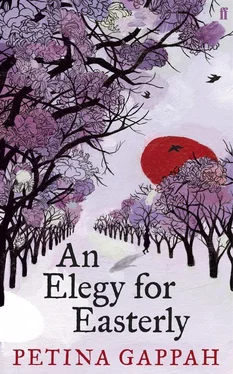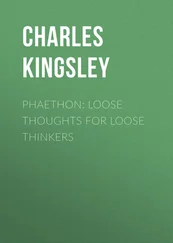He had followed the woman to her house in the corner, grappled her to the ground, forced himself on her, let himself go, and in that moment came to himself. ‘Forgive me,’ he said, ‘forgive me.’
He did not look at her until she said, ‘May I have twenty cents.’ He looked at her smiling face with horror; he fell over his trousers and backwards into the door. He pulled up his trousers as he ran and did not stop running until he reached his house. ‘It is not me,’ he had said again and again. ‘This is not me.’
He lit a cigarette. There was a smell of burning filter. He had lit the wrong end. He bargained with God, he bargained with the spirits on both his mother’s and his father’s sides. He bargained with himself. He would touch no woman other than his wife. He would not leave her, even if she never bore him a child. And even as he later gave in to Rebecca, to Juliet, and the others, he told himself that these others meant nothing at all.

Josephat found Martha lying on the floor on her back. He raised her left arm, it fell back. He covered her body with a blanket, and left the house. Snatches of conversation reached his ears from the group gathered around Ba Toby. For the first time he realised that Easterly was still awake, unusually so; it was well after midnight and yet here were people gathered around in knots in the moonlight. He moved close, he had to know.
‘They were at Union Avenue today, they took all the wares.’
‘They just threw everything in the back of the lorries.’
‘Didn’t care what they broke. Just threw everything.’
‘In Mufakose it was the same, they destroyed everything.’
‘Siyaso is gone, Mupedzanhamo too.’
‘Union Avenue flea market.’
‘ Kwese neku Africa Unity, it is all cleared.’
‘Even kuma surburbs, they attacked Chisipite market.’
‘My cousin-brother said they will come for the houses next.’
‘They would not dare.’
‘ Hanzi there are bulldozers at Porta Farm as we speak.’
‘If they can destroy Siyaso …’
‘But they can’t destroy Siyaso.’
‘That is not possible,’ said Ba Toby. ‘I will not believe it.’
‘I was there,’ Godwills Mabhena said. ‘I was there.’
‘You men, the only thing you know is to talk and talk,’ Mai James said. ‘Where are you when action is required? Where were you when they took down Siyaso? Nyararazvako .’ The last word of comfort was directed to the crying child on her hip. His mother was one of three women arrested in Mufakose, two for attempting to take their clothes off in protest, the third, the child’s mother, for clinging to her box of produce even as a truncheon came down, again, again, on her bleeding knuckles. The child sniffled into Mai James’s bosom.
‘I will not believe it,’ Ba Toby said again.

In his house Josephat took down a navy-blue suitcase and threw clothes into it. His wife held the baby in a tender lock and crooned a lullaby that Josephat’s own mother had sung to him.
‘ Your child will not be consoled, sister .’
‘We are leaving,’ he said.
‘ She cries for her mother, gone away .’
‘We have to pack and leave.’
‘ Gone away, to Chidyamupunga .’
‘The bulldozers are coming.’
‘ Chidyamupunga, cucumbers are rotting .’
‘We have to leave now.’
‘ Cucumbers are rotting beyond Mungezi .’
‘Ellen, please.’
She looked up at him. He swallowed. Her smile in the half-light put him in mind of Martha. ‘We have to leave,’ he said. He picked up an armful of baby clothes. He held them in his hands for a moment, then stuffed them into the suitcase and closed it.
‘It is time to go,’ he said. As they walked, to Josephat’s mind came the words of his mother’s lullaby.
Cucumbers are rotting beyond Mungezi .
Beyond Mungezi there is a big white knife ,
A big white knife to cut good meat ,
To cut good meat dried on a dry bare rock …
They stole out of Easterly Farm and into the dawn.
When the morning rose over Easterly, not even the children noticed Martha’s absence. They were running away from the bulldozers. It was only when Josephat and his wife had almost reached Chegutu that the bulldozers, having razed the entire line of houses from Mai James to Ba Toby, having crushed beneath them the house from which Josephat and his wife had fled, and having razed that of the new couple that no one really knew, finally lumbered towards Martha’s house in the corner and exposed her body, stiff in death, her child’s afterbirth wedged between her legs.
Emily sees Ezekiel shake his arms and hands around his head. Ezekiel is haunted by the buzzing of a thousand phantom mosquitoes. They fly close to his ear; it is always the same ear, the right ear. He swipes at them but this only increases their agitation. He longs to hit one, just one, and see the satisfying streak of blood across the wall. Sometimes he slaps a hand against one, again, again, but he hits nothing but the wall and, more often, himself.
He has to be bandaged often.
In between the buzzing mosquitoes, he says that he hears other sounds: shouting men dressed as soldiers, the dry crackle of the straw on burning huts, screaming children, crying women. More frequent and disturbing than that is this, the high intermittent buzz of the thousand mosquitoes. To keep their noise out of his head, Ezekiel sings a song that Emily remembers from Sunday school:
‘ Father Abraham, please send Lazarus
To rescue me, I am burning in this fire .
Yuwi maiwe yuwi ,
Yuwi maiwe yuwi .
Please send Lazarus, to rescue me
I am dying in this heat .’
And when he screams ‘Abraham, Abraham’ at least twenty times, the mosquitoes are still.
His shouting puts him in conflict with Sister Hedwig. She raps him sharply on the head with her knuckles. He stops screaming, and whispers ‘Abraham, Abraham’ from near the window, close to where Emily stands. She sees him trembling and instinctively puts a hand on his shoulder. They stand in silence looking out at Second Street Extension, at the embassy houses of Belgravia and the golf course across the road. Through the metal grille and the mesh wire, through the reinforced windows that separate them from the outside, they can see small figures on the eighteenth green.
Only outside this window is there change, yet even there a repetitive pattern asserts itself. On Second Street Extension, the cars, buses, emergency taxis are filled with people going about the business of living, the occupants within unaware of the gazes without. One time, two times, five times a day she sees the vans and cars from her suspended life. Up and down goes the little green bus, moving between the city centre and the university. ‘University of Zimbabwe’, a white station wagon says in blue lettering, ‘Faculty of Law’. The car is so close that she can make out the faculty motto below the university crest: fiat justitia ruat coelum . The motto is more than just the words of Caesoninus on a crest, it is a song in her soul, the reason she is a law student, the meaning she wants to give to her life. ‘Let justice be done though the heavens fall,’ she says aloud. Outside, the traffic, golf course, the houses. Inside, the Annexe shuffle.

Читать дальше













